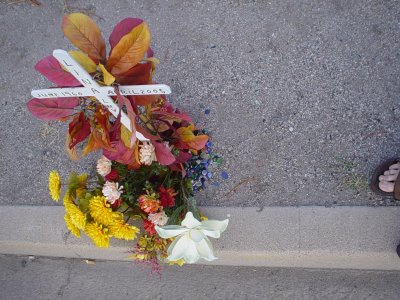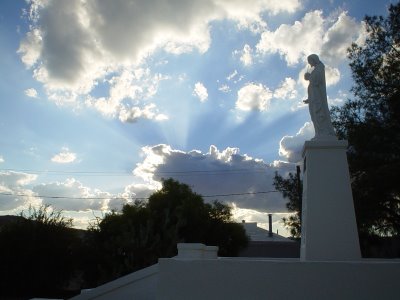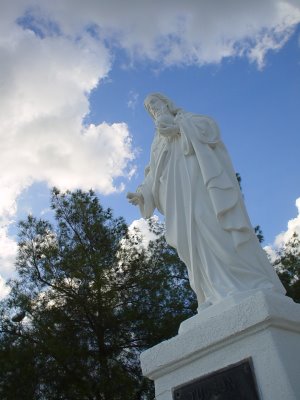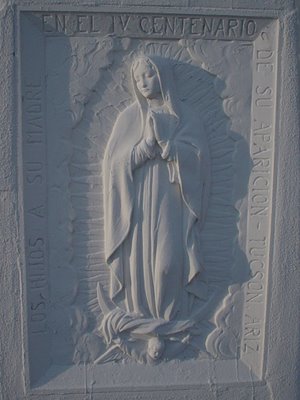I am contemplating writing a similar 4-5 part bulletin article on the virtue of hope so that they can be published through the Advent season; then, for Christmas, I may do another series on the Incarnation. So I'm using this post to brainstorm certain features of hope I would like to teach about.
Certain things I've considered mentioning:
- The fact that hope is a theological virtue, which means that, along with faith and charity, (a) that hope is a gift, (b) that hope can never be had in excess. However, unlike the virtue of charity, but like faith, hope disappears in the life hereafter, because one does not hope for what one already has (the only virtue remaining in Heaven is perfect charity).
- Hope is deeply connected with the other theological virtues because, on one hand, it depends first upon faith (to doubt is always, in one sense or another, to despair), and hope itself is necessary for charity--for one must believe in the goodness and triumph of God before God can be loved.
- This helps in part to explain why the "sin against the Holy Spirit" has been so often correlated with the rejection of hope, that is, despair. To "confound the [Holy Spirit] with the spirit of evil" (as it is put by the old Catholic Encyclopedia) is to despair, utterly, of the goodness and triumph of God, and thus to declare that death alone has the last word on this earth. Despair is thus worse than simple atheism or unbelief--these may simply be the result of ignorance. But despair takes a faith which is already present--the beginnings of salvation--and perverts it to its opposite, by first believing in God and then disbelieving in his goodness. If unfaith is the contraception of salvation, despair is its abortion.
- Presumption the other side of the same coin as despair. It is the vain belief that (or behaving as if) one already has a salvation one does not yet have. This can take many forms. In religious language, it can be the forgetfulness or deliberate suppression of the "not yet" aspect of Christian faith. Sometimes this is called the notion of "realized eschatology;" an exaggerated (and perhaps naive) emphasis on the goodness of this finite world, at the expense of all necessary reminders not to be conformed to the spirit of the age, because this world is passing away. This kind of presumption is very common amid the romantics, starting with Jean Jacques Rousseau; it is also a temptation set before mysticisms of virtually all stripes (though spiritual masters like St. John of the Cross were always vigilant against it).
- The virtue of hope--which again, is pure gift--is the beautiful combination of brutal realism about the world and irrepressible joy in spite of it. In perfect hope (as demonstrated by the saints), our joy (which is not a mere "feeling" and can be had even in a somber mood) is entirely decoupled from the contingencies of this death-ward earth, and thus is life-giving to ourselves and others. J.R.R. Tolkein captured this sense of hope in the character of Gandalf just prior to the raid on Minas Tirith... I need to find the quote, but the hobbit who accompanies him (Pippin?) observes that Gandalf's dark, concerned expression belied something underneath, something like a joyous laughter.
- Because hope is so little spoken of in the modern day--both outside and inside Christianity (we are always more talkative about the plainer virtues of faith and love), the other two virtues are too often distorted and separated from one another. Hope is the glue between them. Without a religious language of hope, modern western society will be addicted to thinking of faith and love as somehow opposed--faith as the "conservative" virtue associated with belief in religious ridiculosities and the rejection of reason and science in favor of a historical construct which pretends to give all the answers; love as the "liberal" virtue, the banal philosophy of niceness which really doesn't need religion, and is the engine driving the feverish promotion of self-infallible Enlightenment values at the expense of objectivity or truth as values at all. Hope heals faith by declaring that the True and the Good are One; and thus reason must be employed to "give an explanation to anyone who asks you for a reason for your hope," (1 Peter 3:15). Hope heals love by reminding us that love has no place in a world where death has the last word; rather, love is essentially tied to the triumph of God, without which it is reduced to the evolved vestige of herd mentality.



















